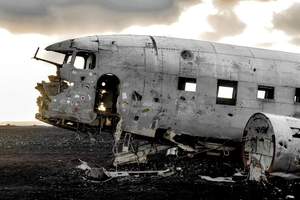Broadcom Buying VMware

Assuming the deal goes through, VMware will become a cash cow for Broadcom, and Broadcom will milk it to death.
VMware underpins a lot of important enterprise workloads. It's why VMware Cloud on AWS is a thing. vCloud Air failed hard because VMware doesn't actually know how to build a cloud, but VMware is remarkably sticky.
Broadcom can milk the VMware cow for a long time because of the switching costs of moving off VMware. Writing new software is hard and risky, so enterprises don't really want to do that just to stop paying VMware licensing fees. If you're a non-tech company (and most are) there's not much benefit to you of rewriting your existing, working apps to be on containers but with 90% more bugs. The savings have to be large, or you need to have other reasons for doing it. Most companies don't.
Not yet.
Kubernetes is still way too hard to operate for most enterprises. There are other approaches—like Hashicorp Nomad and IBM OpenShift—and they'll probably see a nice increase in business, but IT projects fail at an alarming rate. Moving your business critical workloads to something totally new that doesn't add any value is a hard sell when you might have to do it more than once. The risk-weighted switching costs are very high, and the cost savings just aren't there.
Until that changes, Broadcom can charge a bunch of money for exactly the same VMware that exists today. It'll need to invest a bit in security patches and minor updates to fix things that break stuff for the biggest and most lucrative customers, but mostly Broadcom just has to keep the lights on. Say goodbye to R&D expenses and they can turn off most of the sales and marketing. That gets Broadcom most of the way to the projected $8.5 billion in EBITDA they want to achieve.
To use an airplane analogy: VMware has enough altitude that Broadcom can cut off all four of its engines, and it will glide for a long time before it crashes into the ground. It's the same strategy (to use the term very loosely) IBM used for decades.
Killing VMware
There is a dark irony in VMware now being in the position that bare metal vendors were back in the early days of VMware. Physical-to-virtual (P2V) was a big deal, essentially moving workloads on physical hardware to running in a VM, essentially unchanged. You could save a lot of money by virtualising things that were only using 14% of the resources of a physical server and consolidating them together into a cluster, so a lot of people did. Over time, people started building their applications to just work on VMs and VMware became more about flexibility of operations than raw cost savings, but it took a number of years to happen.
We see the same thing playing out now with containers. A legacy VMware becomes like the bare-metal servers of old: something that becomes a mere support layer for the higher-value abstraction above. Virtual machines become the commodity, and containers take over. You don't even need to run them in VMs if you don't want that level of isolation; just run containers on bare metal.
It'll take a while to play out, just as moving to VMs did, but if you want to hasten VMware's demise make it easy to containerise a VM and have it basically run the same as it did before. Then, when Broadcom jacks up the prices, swan in with a simple “buy this and the problem goes away” solution and print money for a couple of years. It's not a long term strategy, but there's a lot of money to be made in the interim, and who knows what interesting things you can discover about what customers actually want to do with containers along the way?
Meanwhile, operating container environments will become easier, and so will migrating workloads to them. That will lower the switching costs, and more and more enterprises will finally hit the “worth it” line and migrate away.
Plus, it's not like VMware is the only way to run VMs. Do you really need all the fancy features for every workload? Maybe Nutanix AHV is good enough. Maybe converting everything to AMIs via a backup/DR tool and running in the cloud starts to make sense. There are just so many ways for VMware to start bleeding customers that there's just no way this acquisition doesn't ultimately kill the VMware we've all got to know.
Some might say that the rot set in some time ago, and this is just another step on the inevitable downwards path. The shambling, decaying spectre will just get a new puppeteer to force the company to plod along as it's gradually bled dry.
Or we might remember that it's just a technology company and we should stop being quite so dramatic.
